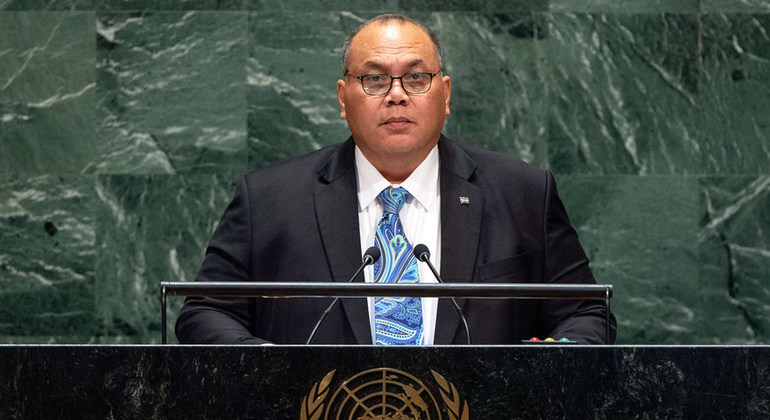The President said tuna fishing generates $6 billion annually for the handful of small island developing States known as the Parties to the Nauru Agreement (PNA), a 1982 accord on fisheries management.
“This fishery is projected to disperse and disappear from the waters of the nine-member countries and territories of the PNA in the not too distant future: another victim of the climate crisis,” he told fellow world leaders.
“Sea level rise is not only about an existential threat to our small and low-lying island. Climate change also threatens an economic Armageddon if the tuna fishery disappears.”
Nauru, among the smallest countries on the planet, has been pushing for action to support small island developing States in the face of the climate crisis.
President Aingimea reported on national projects that address sustainable development and climate action. For example, the Green Climate Fund and other partners are supporting the upgrade of the maritime port which will boost food and energy security, as well as the local economy.
The President explained that currently ships bringing basic goods to the country must moor at sea while smaller vessels ferry their cargo to shore: a costly set-up which can be affected by unpredictable weather conditions.
“The new port has the potential to become a hub of commerce for our small island and the wider Pacific. Value-added services for fishing and shipping vessels will become viable in Nauru. It will become far easier for ship crews to disembark, providing local business owners with more business opportunities. The port will also open new markets to our exports and facilitate development of new trade partners, new trade ventures, all of which will provide a more diversified and reliable revenue stream for our economy,” he said.
Nauru is also advancing on the Higher Ground initiative, which will see houses and other critical infrastructure moved from coastal areas to the interior.
President Aingimea described it as an “historic opportunity” to build resistance to climate change and sea level rise.
“The new port facility and the Higher Ground initiative, along with an aggressive push on renewable energy and efficiency, serve as the major cornerstones of a sustainable development strategy that has the potential to create good jobs, generate new revenue streams, and radically improve our fiscal situation,” he said.
“More importantly, those efforts will finally create a wealth of new opportunities for our youth: something that has gone missing in Nauru for a generation.”



